About
Research in the laboratory focuses on developing nanoscale tools to study biological systems. These tools include instrumentation based on proximity probes, such as electrochemical tunnelling microscopy and spectroscopy and single molecule force spectroscopy, that we apply to investigate electron transfer in individual redox proteins, and other biophysical and biochemical interactions.
These studies are relevant to understand lipid membrane dynamics, to the development of biosensors and molecular electronics devices, and have led to the discovery of long-distance electrochemically gated electron transport between partner proteins of the respiratory and photosynthetic chains.
Another set of nanotools that we are developing is based on engineered molecular actuators that can be switched with light, such as azobenzene, which can be chemically attached to biomolecules in order to remotely control their activity (photopharmacology). They include peptide inhibitors of protein-protein interactions, small molecule enzymatic inhibitors, and photoswitchable ligands of a diversity of other proteins.
Among several applications, these compounds have enabled photoactivated chemotherapy, photocontrol of cellular signaling mediated by ion channels and G protein-coupled receptors, photocontrol of cardiac activity and locomotion, sensory restoration, and photocontrol of brain waves.
Based on these tools, we have also developed two-photon pharmacology to manipulate and study the activity of neurons and glia in intact brain tissue with pharmacological selectivity and sub-cellular three-dimensional resolution.
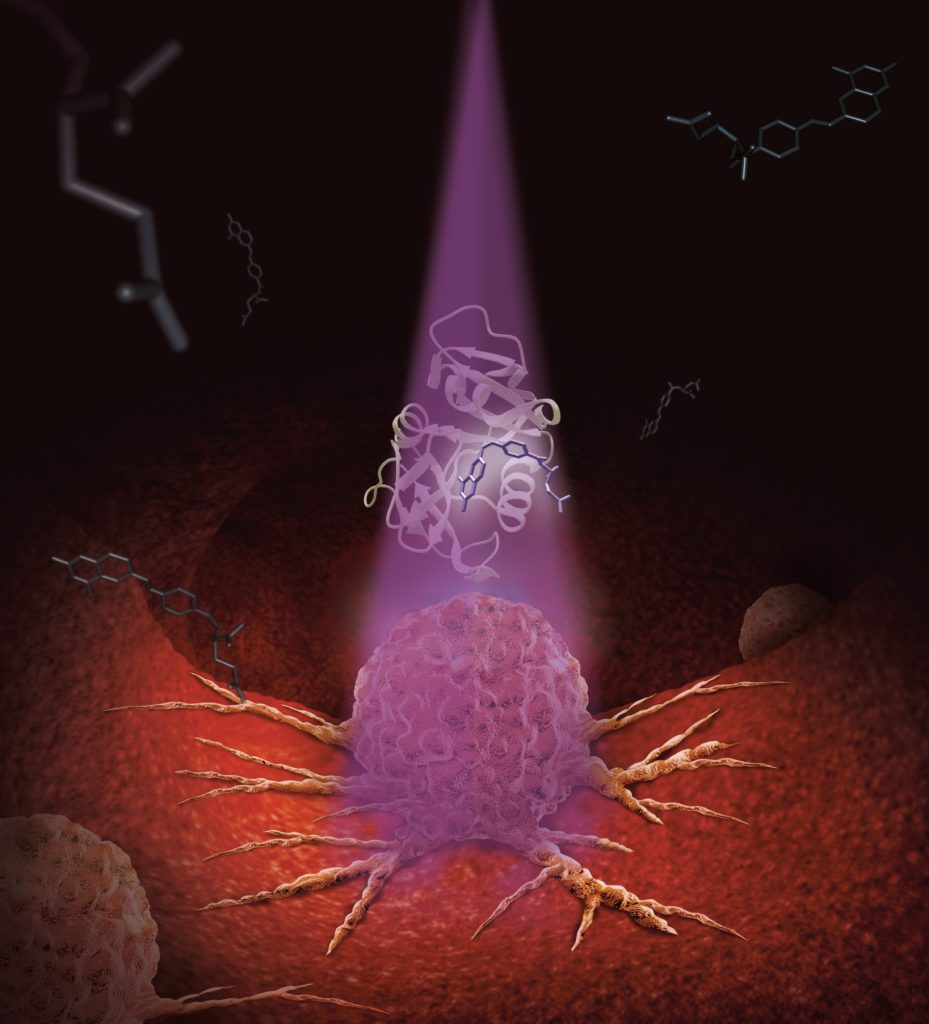

Staff
CURRENT STAFF
Pau Gorostiza Langa
ALUMNI LIST
- Dr. Juan Manuel Artés. Assistant Professor at the University of Massachusetts at Lowell.
- Dr. Marisabel Bahamonde-Santos. Postdoctoral researcher at the Hospital Clínic, University of Barcelona.
- Dr. Antonio Bautista. Data scientist at the data science and analytics company Le Wagon in Bordeaux.
- Dr. Miquel Bosch. Assistant Professor at the International University of Catalonia in Barcelona.
- Dr. Amir Broomand.
- Dr. Rossella Castagna. Assistant Professor at the Latvian Institute of Organic Chemistry in Riga and in the Politecnico di Milano.
- Dr. Aida Garrido-Charles. Alexander vonHumboldt postdoctoral fellow at the University of Göttingen.
- Dr. Alexandre Gomila-Juaneda. Postdoctoral fellow at the Forschungszentrum Jülich.
- Dr. Berta Gumí. Project manager at the clinical research consulting company Teamit in Barcelona.
- Dr. Mercè Izquierdo-Serra. Associate Professor at the University of Barcelona.
- Dr. Montserrat López-Martínez. Postdoctoral fellow at the Technical University of Vienna.
- Dr. Manuel López-Ortiz. Postdoctoral researcher at the University of Rostock.
- Dr. Andrés Martín-Quirós. Manager atthe technology consulting company EY in Barcelona.
- Dr. Carlo Matera. Associate Professor at the University of Milan.
- Dr. Silvia Pittolo. Marie Slodowska Curie postdoctoral fellow at the University of California in San Francisco and Max Delbrück Center in Berlin.
- Dr. Marta Pozuelo Ruiz
- Dr. Davia Prischich. Postdoctoral fellow at the Imperial College, London.
- Dr. Lorena Redondo-Morata. Researcher at the Pasteur Institute in Lille.
- Dr. Fabio Riefolo. Project manager at the clinical research consulting company Teamit in Barcelona.
- Dr. Ricardo Zamora Brito
Undergraduates, master students, and other researchers
- Luca Agnetta, Visiting Researcher
- Adam Ali Dahbi Skali, Masters Student
- Maria Elena Antinori, Masters Student
- Esther Argüelles Marcos, Research Assistant
- Blai Barberà Bertrans, Undergraduate Student
- Felipe Caballero Briones, Postdoctoral Researcher
- Eric Calatayud Gómez, Undergraduate Student
- Pablo Calvé Pérez, Masters Student
- Francesco Calzaferri, Masters Student
- Maria Cambra Pellejà, Undergraduate Student
- Àlex Carreté Bello, Masters Student
- Maria Casademont Cavero, Undergraduate Student
- Laura Casas Ferrer, Masters Student
- Pere Català Quilis, Undergraduate Student
- Alejandro Cebrián Ortiz, Undergraduate Student
- Àlvar Claparols Carrasco, Masters Student
- Adrián Crespo Villanueva, Masters Student
- Fernanda Da Silva Andrade, PhD Student
- Nadim Darwish, Postdoctoral Researcher
- Paula de Saralegui Cabot, Undergraduate Student
- Genís Del Pino Vives, Undergraduate Student
- Ismael Díez Pérez, Visiting Researcher
- Beatriu Domingo Tafalla, Masters Student
- Judit Donada Oliu, Masters Student
- Joël Donkeng Dazie, Visiting Researcher
- Jose Antonio Durán Mota, Masters Student
- Gustavo Echeveste, Masters Student
- Safae El Jellouli Bota, Undergraduate Student
- Victòria Englert González, High School / Voc. Training
- Míriam Ferrer Huerta, Masters Student
- Mattia Ferrero, Undergraduate Student
- Marta Forcella, Masters Student
- Coral Fustero Torre, Undergraduate Student
- Ignasi Garcia Ibañez, undergraduate
- Lídia García Guillamón, Undergraduate Student
- Hubert Gerwe, Visiting Researcher
- Irene Giménez Gonzalez, High School / Voc. Training
- Arnaud Giraudet, Undergraduate Student
- Alfredo Maria Gravagnuolo
- Iñigo Hierro Rivero, Masters Student
- Javier Hoyo Pérez, PhD Student
- Mariana Köber, Visiting Researcher
- Alvaro Lahiguera
- Michela Libergoli, Masters Student
- Lia Lima , Undergraduate Student
- Aaron Mañas Marin, Undergraduate Student
- Santiago Martin Solans
- Alejandro Martín Rodríguez, PhD Student
- Xavier Martínez Soler, Undergraduate Student
- Marta Masó Martínez, Masters Student
- Sònia Matencio Lloberas, Masters Student
- Debora Mazzetti, Masters Student
- Mireia Novell Cardona, Undergraduate Student
- Claudia Orabona Masters Student
- Sthefany Ortiz Tescari, Undergraduate Student
- Alissa Jayne Owen, Undergraduate Student (erasmus)
- Andras-Robert Pal Polgar, Undergraduate Student
- Anna Palacios Padrós, PhD Student
- Jaume Palou Fusté, Senior Researcher
- Claudio Papotto, Masters Student
- Laia Pasquina Lemonche, Masters Student
- Marina Pedrola Teixell, Undergraduate Student
- Sara Peña Gutiérrez, Undergraduate Student
- Deborah Pirovano, Masters Student
- Santiago Pons Allés, Masters Student
- Judit Prat Trunas, Undergraduate Student
- Beatrice Preda, Masters Student
- Guillermo Prol Castelo, Undergraduate Student
- Josecarlo Alejandro Quintanilla Ibarra, Undergraduate Student
- Cristian Ramos Guerra, Undergraduate Student
- Sara Redondi, Masters Student
- Ivan Rimmaudo
- Cristina Rivero Martí, Undergraduate Student
- Silvia Roda, Masters Student
- Karin Rustler, Masters Student
- Ewa Rzad, Undergraduate Student (erasmus)
- Júlia Sanz Farnós, Undergraduate Student
- Veronica Sarasso, Postgraduate Student
- Christian Seca, Undergraduate Student
- Silvia Sodric Hidalgo, Masters Student
- Karolina Szczesna, Undergraduate Student
- Maria del Carmen Torres Martín-Mora, Masters Student
- Iro Tsintzou, Masters Student
- Simone Vitiello, PhD Student
- Pamina Winkler, Visiting Researcher
- Daniel Wutz, PhD Student
Projects
| INTERNATIONAL PROJECTS | FINANCER | PI |
|---|---|---|
| DEEPER · Deep Brain Photonic Tools for Cell-type specific targeting of Neural diseases (2021-2025) | European Commission, ICT | Pau Gorostiza |
| Human Brain Project Specific Grant Agreement 3 (2020-2023) | European Commission, FET FLAGSHIPS | Pau Gorostiza |
| NATIONAL PROJECTS | FINANCER | PI |
|---|---|---|
| DEEP RED · Neuromodulación de las vías inhibitorias mediante fotofarmacología activada por luz roja e infrarroja (2020-2023) | MINECO, Retos investigación: Proyectos I+D | Pau Gorostiza |
| PRIVATELY FUNDED PROJECTS | FINANCER | PI |
|---|---|---|
| Drug4Sight · Light-regulated drugs to restore sight (2019-2022) | Obra Social La Caixa | Pau Gorostiza |
| FINISHED PROJECTS | FINANCER | PI |
|---|---|---|
| DECA CECH · Cluster Emergente del Cerebro Humano (2019-2021) | RIS3CAT – Tecnologies Emergents | Pau Gorostiza |
| SGR Grups de recerca consolidats (2017-2020) | AGAUR / SGR | Pau Gorostiza |
| Q-SPET · Quantum-controlled Single Protein Electron Transport (2019-2020) | BIST Ignite Program | Pau Gorostiza |
| Human Brain Project Specific Grant Agreement 2 (2018-2020) | European Commission, FET FLAGSHIPS | Pau Gorostiza |
| FOCUS Single Molecule Activation and Computing | ICT | Pau Gorostiza |
| THERALIGHT Therapeutic Applications of Light-Regulated Drugs | ERC-PoC | Pau Gorostiza |
| Single-BioET Single-molecule junction capabilities to map the electron pathways in redox bio-molecular architectures (2012-2016) | MARIE CURIE – RG | Ismael Díez |
| Optogenetic pacemaking to rewire neural circuits | La Marató TV3 | Pau Gorostiza |
| OPTOPHARMACOLOGY Aplicaciones terapéuticas de la optofarmacología | MINECO (CTQ2013-43892-R) | Pau Gorostiza |
| Milk fat globule membrane and periphera proteins: lipid-protein interactions (2016-2017) | Fausto Sanz | INRA |
| WaveScalES Human Brain Project Specific Grant Agreement 1 (2016-2018) | European Commission, FET FLAGSHIPS | Pau Gorostiza |
| OPTOFRAX Optopharmacological brain mapping of autism mouse (2015-2017) | MARIE CURIE – IF | Miquel Bosch |
| NANOPROSTHETICS Prótesis moleculares para restablecer la visión basadas en fotoconmutadores covalentes dirigidos (2016-2019) | MINECO, Retos investigación: Proyectos I+D | Pau Gorostiza |
| MODULIGHTOR Moduladores fotoconmutables sintéticos para manipular remotamente proteínas endógenas: fotocontrol in vivo de canales iónicos pentaméricos (2015-2018) | MINECO Nacional /Acciones de Programación Conjunta Internacional | Pau Gorostiza |
| nanoET-leukemia Nanoconductance of electron transfer proteins of the respiratory chain. Direct measurement at the single molecular level and therapeutic regulation in cancer stem cells (2015-2018) | MINECO, Proyectos RETOS 2015 / CIBER | Marina Giannotti / Anna Lagunas |
| Inhibición fotoselectiva de interacciones proteína-proteína para el estudio de redes interactómicas y el desarrollo de nuevas terapias (2015-2018) | Pau Gorostiza | Fundación Ramon Areces |
| Fotoconmutadores covalentes para el control remoto de receptores endógenos (2017-2019) | Pau Gorostiza | Convocatoria de Ayudas a la Investigación FUNDALUCE |
Publications
Check for more detailed information on the outputs of the Group at IBEC CRIS portal.
Publications list:
Equipment
- Asylum Research Molecular Force Probe
- Multimode SPM Nanoscope III (SCT-UB)
- Ivium and Autolab potentiostats
- Patch clamp setup with Heka EPC10 amplifier
- Molecular Imaging Electrochemical STM
- Zebrabox behavioral imaging system
- Tecan plate reader
Collaborations
- Prof. Ulrich Zeilhofer
University of Zürich - Prof. Tobias Moser
University of Göttingen - Dr. Mireia Oliva
Dept. de Farmàcia i Tecnologia Farmacèutica, Universitat de Barcelona - Niek van Hulst, Michael Krieg, Pablo Loza
Institut de Ciències Fotòniques (ICFO) - Carme Rovira
ICREA, Universitat de Barcelona - Pedro de la Villa
Universidad de Alcalá de Henares - Burkhard König
Regensburg University - Michael Decker
Regensburg University - Roberta Croce
Vrije Universiteit Amsterdam - Irene Díaz-Moreno, Miguel Ángel de la Rosa, Antonio Díaz-Quintana
Instituto de Investigaciones Químicas, Universidad de Sevilla - Jordi Hernando, Ramon Alibés, Félix Busque, Josep Maria Lluch
Universitat Autònoma de Barcelona, Spain - Maria Isabel Geli
Institut de Biologia Molecular de Barcelona
News

IBEC secures competitive funding to drive forward validation testing for three innovative health projects
IBEC has been awarded three grants in response to the call for proposals from the Strategic Plan for Health Research and Innovation (PERIS). These projects aim to validate hyperspectral technology for improving assisted reproduction, using bioprinted cell spheroids to combat type 1 diabetes and developing light-activated drugs to restore vision in patients with retinal degeneration.
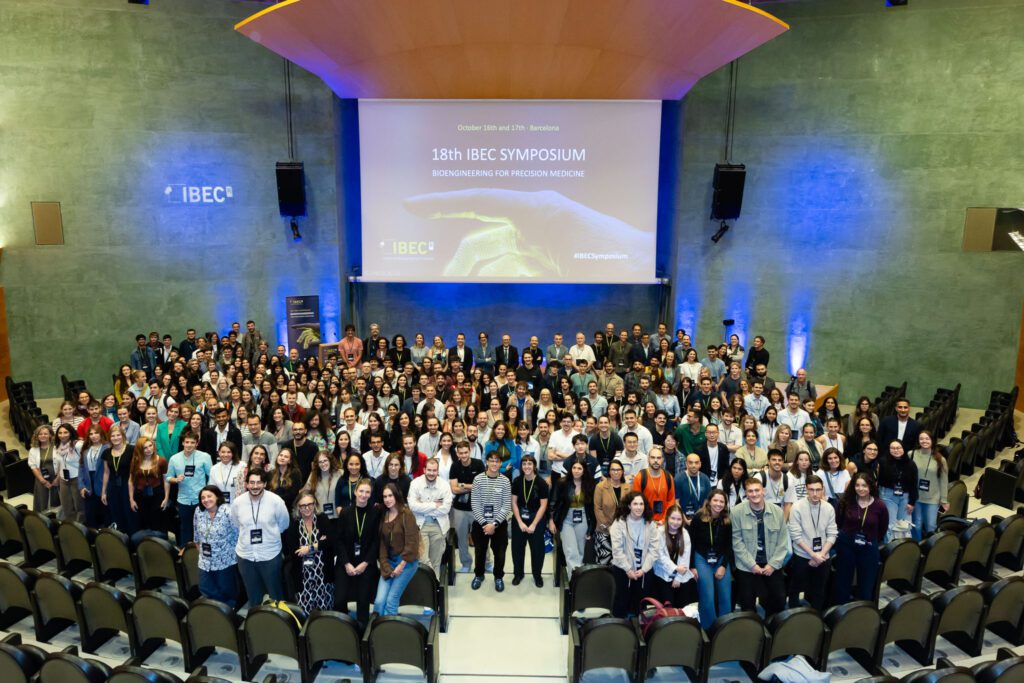
Bioengineering for precision medicine at the 18th IBEC Symposium
The 18th annual IBEC Symposium focused on ‘Bioengineering for Precision Medicine’, which is one of IBEC’s key areas of application. The event was attended by nearly 300 people, including local and international researchers. The multidisciplinary environment provided experts from other centres and the IBEC community with the opportunity to present their projects and exchange knowledge.
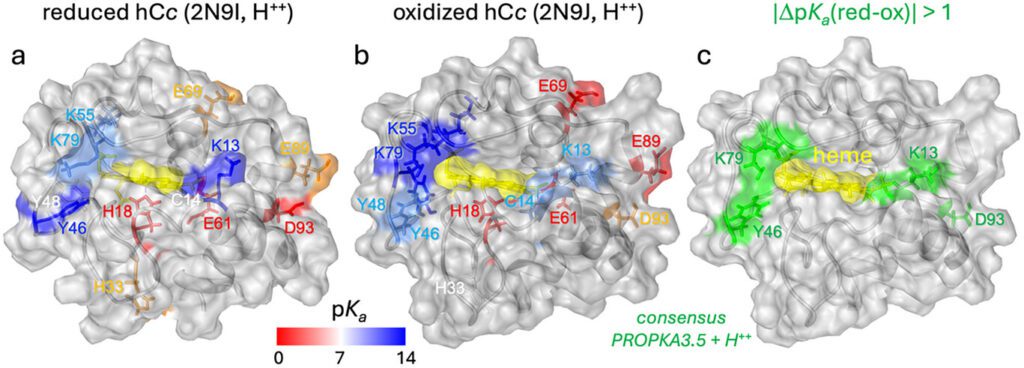
Scientists discover a key role of protons and superoxide ions in the respiratory chain
A study led by the Institute for Bioengineering of Catalonia (IBEC) has revealed that protons and reactive oxygen species mediate long-distance charge transport in the mitochondrial respiratory chain — a fundamental process in cellular respiration in organisms. Understanding these mechanisms is crucial, given that mitochondria are the powerhouses of all cells and alterations to them are associated with numerous diseases.
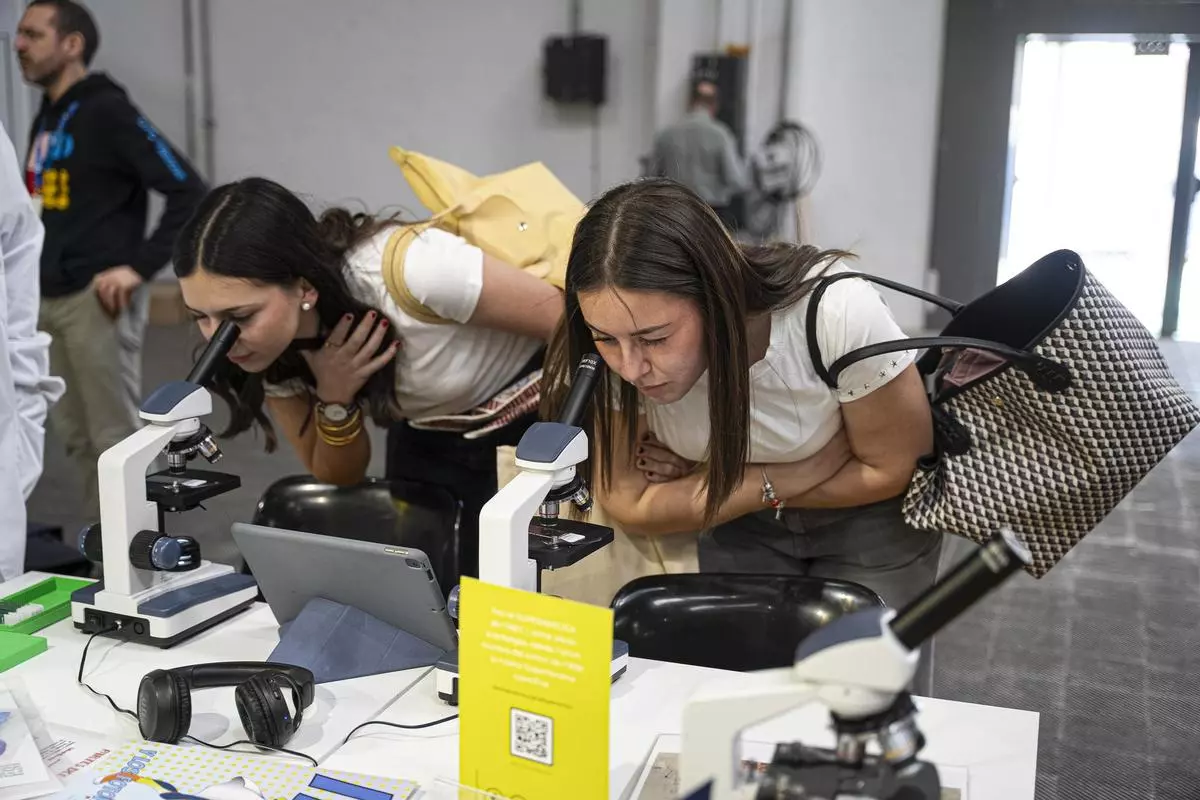
ARA: “Es pot escoltar el cervell d’un ratolí?”: trobar la vocació científica al Saló de l’Ensenyament
Universitats i centres de recerca han unit esforços sota el paraigua de la Fundació Catalana per a la Recerca i la Innovació (FCRI) per aconseguir que la ciència al Saló de l’Ensenyament literalment es pugui viure i tocar.
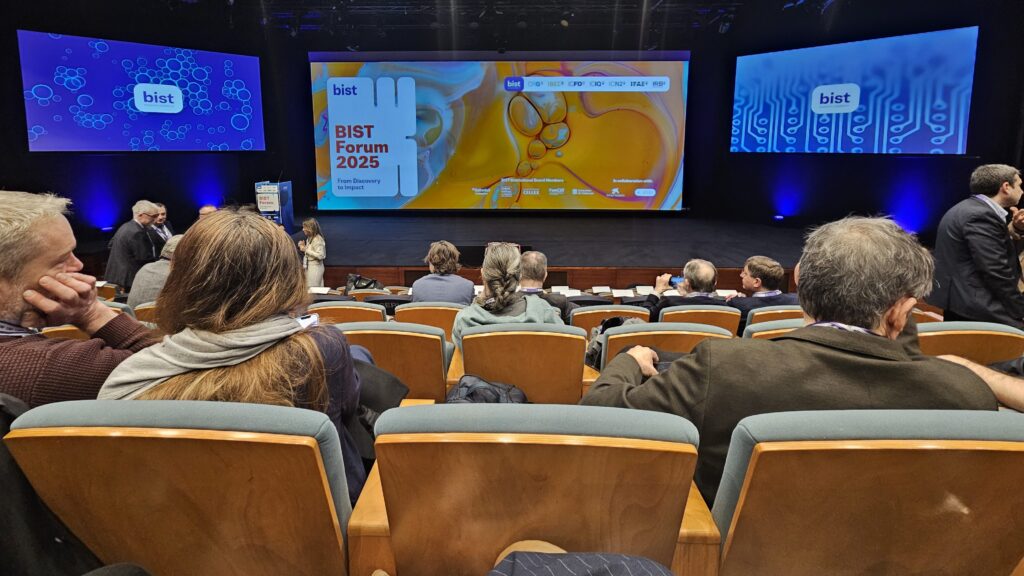
IBEC stands out at BIST Forum with 4 BIST Ignite projects and a BIST Ignite Award
Today, the BIST Forum, an event that brings together the BIST scientific community, focused this year on the joint initiative of the seven CERCA centres to promote precision medicine in healthy ageing. During the event, the new BIST Ignite projects to promote multidisciplinary research were announced, with IBEC involved in four of the five selected projects. In addition, one of the projects in which IBEC is involved won a BIST Ignite Award.

Biosensors based on olfactory receptors to decipher the human sense of smell
A study led by the Institute for Bioengineering of Catalonia (IBEC) and the CIBER’s Bioengineering, Biomaterials and Nanomedicine (CIBER-BBN) describes a method that mimics the physiological response to smell. The system makes it possible to discriminate between odours with very similar characteristics based on the binding interaction with the receptor, which causes a change in the capacitive response of the receptor. The application of this methodology opens the door to the development of highly selective olfactory biosensors.
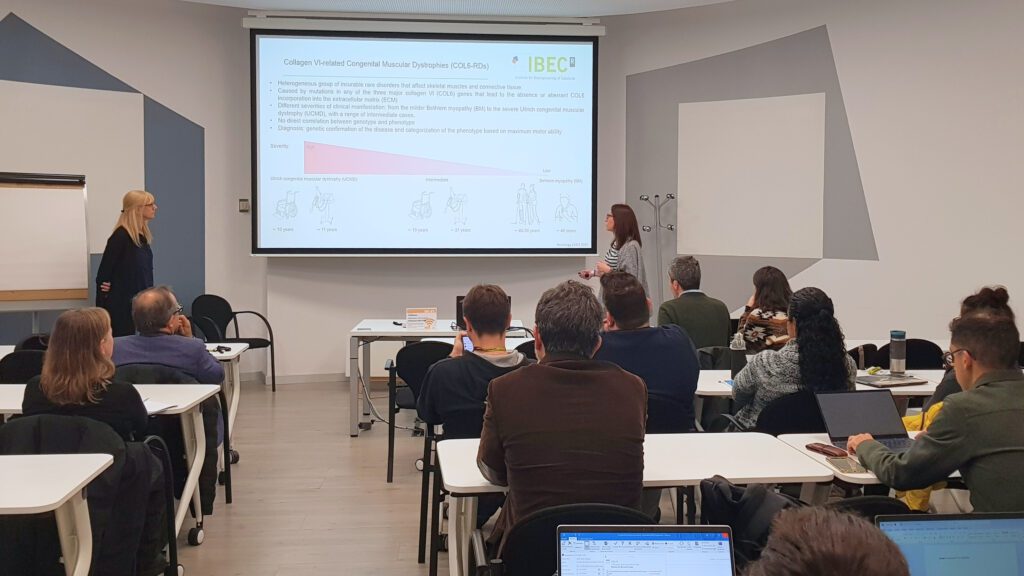
IBEC and SJD Barcelona Children’s Hospital strengthen their collaboration with a day of translational innovation
The Institute for Bioengineering of Catalonia and the Sant Joan de Déu Barcelona Children’s Hospital have held a joint conference to strengthen collaboration in bioengineering and translational medicine. The event, held this morning at the IBEC, highlighted innovative projects, presented a joint PhD programme and encouraged the exchange of ideas between researchers from both institutions.
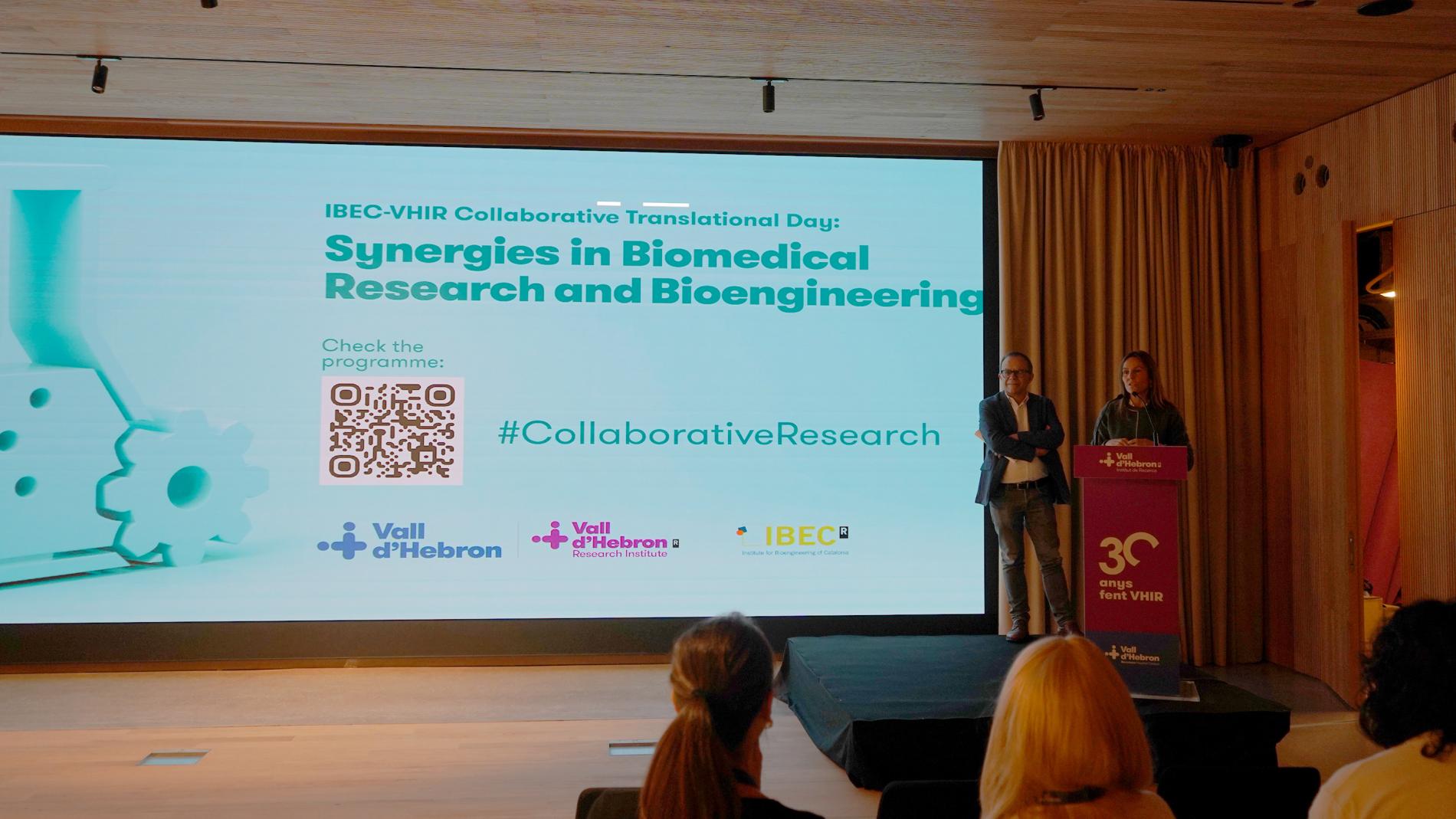
IBEC and VHIR hold a collaboration day to promote synergies
The 1st Translational Collaboration Day between the Vall d’Hebron Institute of Research (VHIR) and the Institute of Bioengineering of Catalonia (IBEC), held on 21st November, was an opportunity to learn about the projects and research lines of both institutions and to promote interaction between professionals.
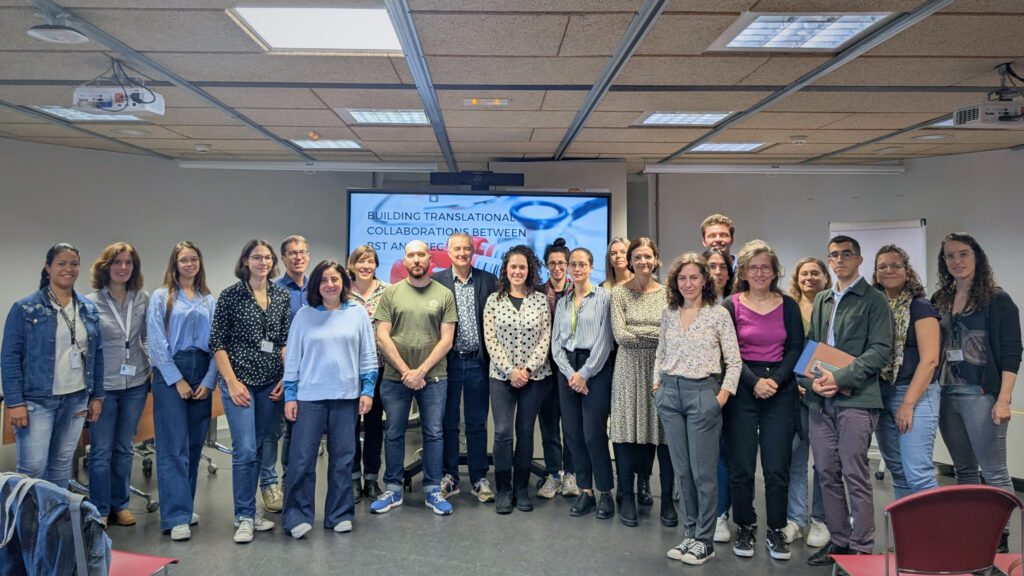
IBEC and BST strengthen ties with Translational Collaboration Day
IBEC and the Blood and Tissue Bank of Catalonia (BST) held a day to explore new collaborations in bioengineering and translational medicine. The meeting, held yesterday at IBEC, highlighted innovative projects, presented a joint PhD programme and strengthened the link between biomedical research and clinical applications.
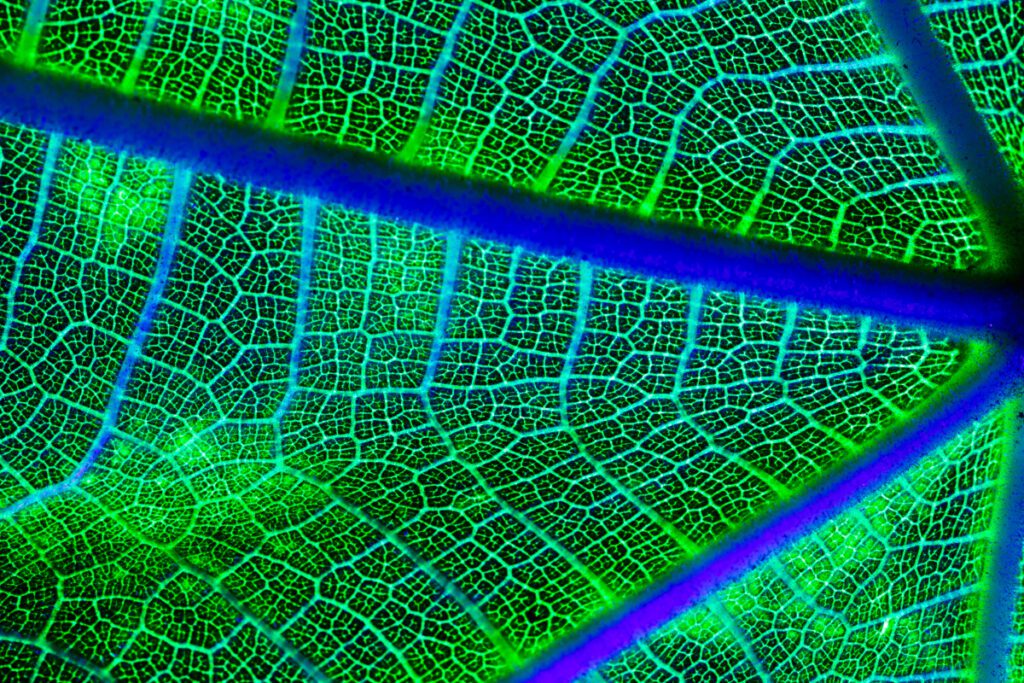
Ultrafast 2D spectroscopy probes charge separation in the plant photosystem
A team of researchers led by IBEC and ICFO has developed and validated a novel photoelectrochemical electron spectroscopy technique to probe charge separation dynamics, a crucial step for photosynthesis, in photosynthetic complexes.
Jobs
We are happy to receive CVs and enquiries from talented individuals. Prospective students and staff are encouraged to contact us to discuss possibilities. Please feel free to suggest new projects, areas of research or new ideas. You can visit the jobs page to find currents job openings in all IBEC groups or administration positions.
Postdoctoral Researcher at the Nanoprobes & Nanoswitches Research Group
Ref: PR-PG // Deadline: 31/01/2026
Postdoctoral Researcher at the Nanoprobes and Nanoswitches Research Group
Ref: PR-PG // Deadline: 22/12/2025
Technical Support to Research at the Nanoprobes and Nanoswitches Research Group
Ref: TSR-GM // Deadline: 20/12/2025
Predoctoral Researcher at the Nanoprobes and Nanoswitches Research Group
Ref: Phd-GM // Deadline: 27/10/2025
Research assistant at the Nanoprobes and Nanoswitches Research Group
Ref: RA-PG // Deadline: 25/10/2025
Research Assistant at the nanoprobes and nanoswitches research group
Ref: RA-PG // Deadline: 31/07/2025
Predoctoral researcher at the nanoprobes and nanoswitches research group
Ref: PhD-PG// Deadline: 31/07/2025
Laboratory Technician at the Nanoprobes and Nanoswitches Research Group
Ref: LT-GM // Deadline: 25/05/2025
Postdoctoral researcher at the nanoprobes and nanoswitches research group
Ref: PR-PG // Deadline: 22/05/2025
Predoctoral researcher at the Nanoprobes and Nanoswitches Research Group
Ref: PhD-PG // Deadline: 12/05/2025


 ibecbarcelona.eu
ibecbarcelona.eu